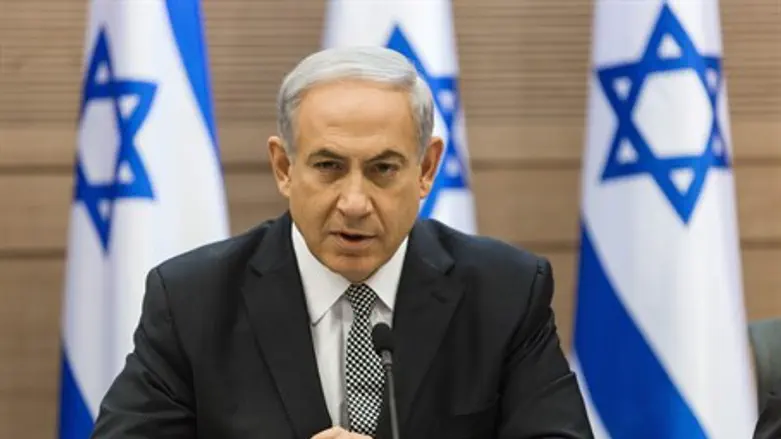
In his first interview after the latest ceasefire in Operation Protective Edge, Prime Minister Binyamin Netanyahu explained why he decided to opt for a ceasefire with Hamas, as opposed to continuing the campaign and unseating Hamas.
Netanyahu told Channel 2 that while it is still possible that the IDF will eventually topple Hamas altogether, “today, when I look around and I see Al Qaeda on the [border] fence, and ISIS galloping into Jordan and already in Lebanon, and in Lebanon there is Hezbollah that is a little larger than Hamas, and Iran that backs it, and Iran [itself] – and I say, in the face of these combined threats, we set a goal in the Cabinet, to deal Hamas a very severe blow, and we did this, with the thousand terrorists we killed, the senior commanders, the tunnels, the rockets... I decided not to put all of our resources into this single arena and not into other arenas.”
To put into proportion the IDF effort in Gaza, Netanyahu noted that US President Barack Obama is currently assembling an international coalition against ISIS, which is “half the size of Hamas.”
He said that once the tunnel threat had been dealt with, Israel pulled out the IDF forces from Gaza because he didn't want soldiers getting killed and abducted. “Why do I need to go in? If I can hit them from the air and get the effect of grinding them without risking soldiers' lives, why should I go in?”
Netanyahu said that the US dealt with a similar situation in the past, with Fallujah in Iraq. Fallujah is one-tenth the size of Gaza, he noted, and the US fought valiantly against the islamists there, and thousands of Iraqis were killed. But after the US pulled out of Fallujah, the islamists took over again. In order to prevent this from happening in Gaza after Israel topples Hamas, he explained, it would have to remain there, and this would be very costly.
He said that Hamas has been “ground,” it is isolated, and will not be able to rearm. He vowed that he will not allow “drizzles” of rocket fire from Gaza, and these will be answered with heavy IDF fire.
